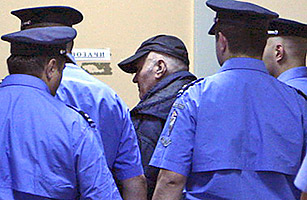
In the years following the Cold War and the hemorrhaging of Yugoslavia, Serbia earned the dubious distinction as Europe’s pariah state, widely viewed as a brutal aggressor in the Balkan wars. But the past decade has seen Serbia change tack, steering away from prickly nationalism, and the arrest on Thursday of General Ratko Mladic, Europe’s most wanted war-crimes suspect, represents a key moment in the country’s journey to global respectability. It also, crucially, acts as a fillip to Belgrade’s bid to join the European Union — and as the news of Mladic’s capture spread, politicians from across the Continent signaled their readiness to finally welcome Serbia to the European family.
Speaking at the G8 summit in Deauville on Thursday, French President Nicolas Sarkozy described Mladic’s arrest as “a step toward integration of Serbia into the European Union someday soon,” while German Chancellor Angela Merkel said: “This is at once the best basis for the region achieving reconciliation and a future in Europe.” Italian Foreign Minister Franco Frattini said the arrest was “a test of the great democratic maturity of Serbia, which gets closer to Europe and the European Union,” and Swedish Foreign Minister Carl Bildt said that Serbia’s European prospects are now “brighter than ever.”